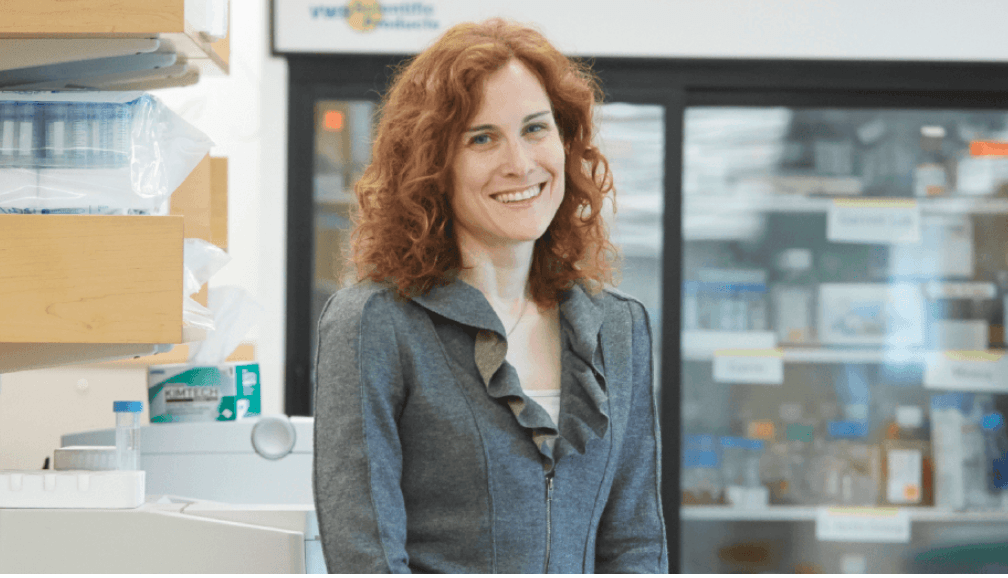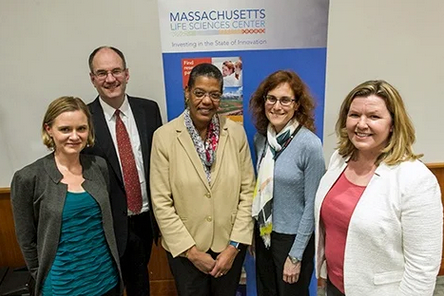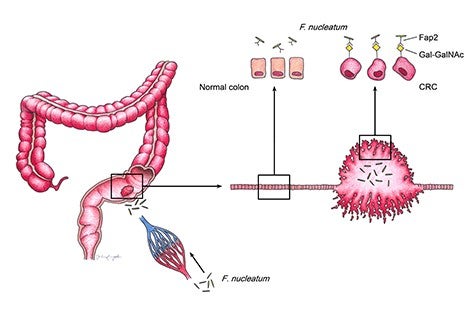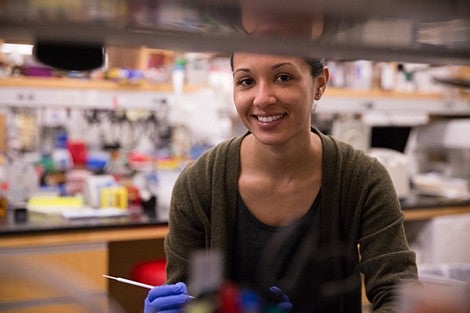In the field of microbiome science, researchers have long focused on studying the bacteria that live inside and on the human body. But other types of microbes also play an important role in human health and disease, including viruses—both phage viruses that infect bacteria and eukaryotic viruses that infect human cells—and fungi. Read the full article “Symposium highlights lesser-known members of the microbiome”
PODCAST “The future of cancer prevention” (part 2)
In 2018, colorectal cancer was the third-most common diagnosed cancer among both men and women in the U.S., and data indicate that younger adults are increasingly being diagnosed with it. A new research initiative will examine how the microbiome—a collection of trillions of microorganisms throughout the body—affects the development of colorectal cancer. Scientists on the team will also seek out ways to manipulate the microbiome to better prevent and treat…
Continue reading “PODCAST “The future of cancer prevention” (part 2)”
PODCAST “The future of cancer prevention” (part 1)
The statistics on cancer worldwide are staggering: In 2018, more than 18 million people worldwide were diagnosed with the disease, and nearly 10 million died from it. And the burden of cancer is only expected to grow in the coming decades, thanks to a combination of the world’s aging population, the adoption of unhealthy lifestyles, and environmental exposures linked to cancer. The challenge of combating cancer may seem daunting, but research…
Continue reading “PODCAST “The future of cancer prevention” (part 1)”
To stop colon cancer, new study looks to the microbiome
The burden of colorectal cancer is staggering. In 2018, it was the third-most common diagnosed cancer among both men and women in the U.S., and data indicate that younger adults are increasingly being diagnosed with it. Read the full article “To stop colon cancer, new study looks to the microbiome”
Harvard Chan School awarded $4.9 million to create microbiome biobank
Scientists are just beginning to understand the many ways in which our microbiomes—the trillions of microbial organisms that live on and inside our bodies—influence a range of threats to human health including cancers, diabetes, heart disease, and obesity. To help leverage the power of this new area of research, Harvard T.H. Chan School of Public Health is creating an integrated platform to collect, use, and analyze microbiome-based specimens. Read the…
Continue reading “Harvard Chan School awarded $4.9 million to create microbiome biobank”
Fusobacteria use a special sugar-binding protein to bind to colon tumors
Boston, MA — Some bacteria, called fusobacteria, commonly found in the mouth, use a sugar-binding protein to stick to developing colorectal polyps and cancers, according to a new study by researchers from Harvard T.H. Chan School of Public Health and Hebrew University-Hadassah School of Dental Medicine. While certain fusobacteria have previously been shown to worsen colorectal cancer in animals by the Garrett Lab at Harvard Chan School, this study is…
Continue reading “Fusobacteria use a special sugar-binding protein to bind to colon tumors”
Gut check: Shining a light on our bacteria’s role in disease
May 19, 2016 — Back when she was a high school athlete, Michelle Rooks, who will graduate with her PhD in biological sciences in public health later this month, saw how making changes to her diet could improve her performance. In her research at Harvard T.H. Chan School of Public Health, Rooks has taken her interest in the connection between food, nutrition, and health to the microscopic level—she’s been working…
Continue reading “Gut check: Shining a light on our bacteria’s role in disease”
Bugs in the System
From a microbial perspective, the human colon is a teeming metropolis, home to the most densely populated collection of microbes on the planet. Remarkably, these organisms are not only tolerated but also often required for normal body functioning—as much a part of human biology as our own cells. “We’re used to thinking about microbes as enemies—as major threats to our health—but most microbes don’t cause disease. They actually help us…





